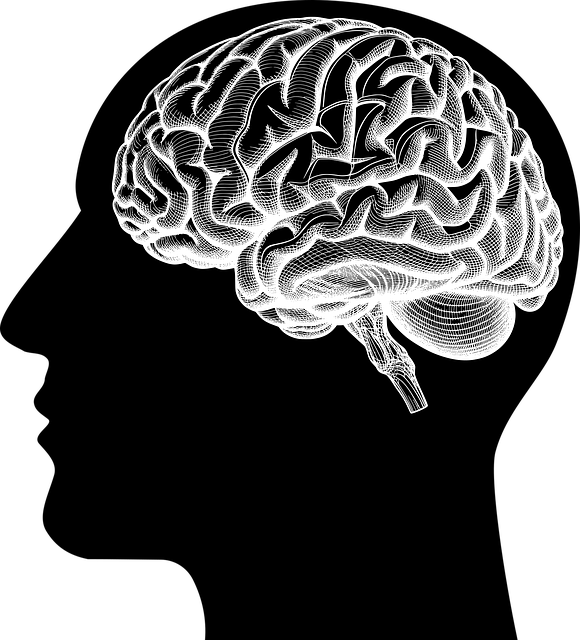Social Skills Training (SST) is an effective, culturally sensitive therapy for Mandarin-speaking children with mental health conditions, addressing their unique needs in a diverse society. By focusing on self-awareness, emotional regulation, and social-emotional learning through exercises like role-playing and group therapy, SST enhances communication skills and builds relationships. This tailored approach, including family involvement and bilingual practices, empowers children to engage with peers, improving their mental health and sense of belonging. Measuring success involves holistic assessment methods and continued support beyond training sessions, ensuring sustained social development for Mandarin Chinese-speaking kids.
Social skills training is a powerful tool for children with mental health conditions, offering a supportive environment to navigate complex social interactions. This article explores the benefits of such training, focusing on a bilingual approach for Mandarin Chinese-speaking children. We delve into identifying specific challenges these children face, providing practical techniques and activities for therapists. Additionally, we discuss measuring progress and ensuring continued support for their social development in therapy.
- Understanding Social Skills Training for Mental Health Conditions
- The Importance of Bilingual Approach in Therapy: Mandarin Chinese Speaking Children
- Identifying Challenges in Social Interaction for Children with Mental Health Conditions
- Techniques and Activities for Social Skills Training
- Measuring Success and Continued Support for Children's Social Development
Understanding Social Skills Training for Mental Health Conditions

Social Skills Training (SST) is a form of therapy designed to help individuals with mental health conditions navigate and improve their social interactions. For children speaking Mandarin Chinese, SST can be a game-changer as it addresses unique cultural nuances while focusing on enhancing communication and relationship building skills. This approach is particularly beneficial for those dealing with anxiety, depression, or other challenges that may impact their ability to engage socially.
The therapy involves various exercises aimed at boosting self-awareness and emotional regulation, two crucial aspects of healthy social functioning. By participating in SST, children learn to recognize and manage their emotions more effectively, which can prevent the escalation of mental health issues like depression. Self-awareness exercises encourage individuals to reflect on their thoughts and behaviors, fostering a deeper understanding of themselves and others. This increased self-awareness, coupled with improved emotional regulation, paves the way for better social interactions and enhanced overall well-being.
The Importance of Bilingual Approach in Therapy: Mandarin Chinese Speaking Children

In today’s diverse society, it’s essential to recognize and cater to the unique needs of Mandarin Chinese-speaking children when it comes to mental health support. Many children within this community face challenges due to cultural barriers and a lack of access to therapy services tailored to their linguistic and cultural background. This is where a bilingual approach in therapy becomes indispensable. By incorporating Mandarin language and culturally sensitive practices, therapists can create a safe and inclusive environment for these children to express themselves and engage in social skills training.
A bilingual therapist who understands both the nuances of childhood development and Mandarin Chinese culture can effectively facilitate social-emotional learning. They can teach conflict resolution techniques and promote mental wellness through engaging activities and conversations in Mandarin. This approach not only ensures effective communication but also empowers children to develop essential life skills while preserving their cultural identity. Moreover, it encourages families to actively participate in therapy, fostering a collaborative environment that is key to successful social skills training for Mandarin Chinese-speaking children.
Identifying Challenges in Social Interaction for Children with Mental Health Conditions

Children with mental health conditions often face unique challenges when it comes to social interactions. One significant hurdle is their struggle to express emotions and understand social cues, which can lead to miscommunication and isolation. These kids might experience difficulty in initiating conversations, maintaining eye contact, or interpreting non-verbal signals, making playdates and classroom activities potentially daunting tasks. As a result, they may avoid social situations, causing further withdrawal and impacting their overall well-being.
Social skills training tailored for this demographic is crucial. Through therapy sessions, children can learn effective communication strategies, including expressing their feelings and needs assertively. They are taught conflict resolution techniques to navigate social conflicts peacefully. Moreover, coping skills development becomes an integral part of the process, enabling them to manage stress and anxiety in social settings. The ultimate goal is to empower these young individuals with the tools to engage with peers, fostering a sense of belonging and enhancing their mental health.
Techniques and Activities for Social Skills Training

Social Skills Training involves a variety of techniques and activities designed to help individuals with mental health conditions improve their interactions and relationships with others. One effective approach is role-playing, where participants can practice specific social scenarios in a safe environment. This method is particularly beneficial for children learning Mandarin Chinese, as it allows them to develop communication skills while navigating cultural nuances.
Additionally, group therapy sessions encourage open dialogue and peer support, fostering an inclusive atmosphere. Activities such as collaborative problem-solving exercises and creative projects promote active participation and build teamwork. For healthcare providers looking to enhance their own communication strategies, these training methods can offer valuable insights into burnout prevention techniques. The Mental Wellness Podcast Series Production also plays a role by providing real-life examples and expert advice on effective communication strategies within diverse communities, including those speaking Mandarin Chinese.
Measuring Success and Continued Support for Children's Social Development

Measuring success in social skills training for Mandarin Chinese speaking children with mental health conditions requires a multifaceted approach. Therapists should utilise both qualitative and quantitative methods to assess progress, such as observer ratings, parental reports, and structured interviews. This comprehensive evaluation ensures that improvements are not only observed but also quantitatively validated.
Continued support is vital to sustain the social development of these children. Therapy for Children Mandarin Chinese speaking should extend beyond the training sessions, incorporating self-awareness exercises tailored to their cultural context. Encouraging the development of a healthy self-care routine for better mental health can help them generalise learned skills and maintain progress over time. Risk assessment remains critical for mental health professionals working with this population, ensuring that potential challenges are proactively addressed for each child’s unique needs.
Social skills training is a vital component of comprehensive therapy, especially for children navigating mental health conditions. As highlighted in this article, understanding the unique challenges faced by Mandarin Chinese-speaking children in social interactions is essential to developing effective strategies. By adopting a bilingual approach and incorporating diverse techniques, therapists can foster meaningful social development. Measuring success involves ongoing assessment and providing continued support tailored to each child’s needs, ensuring they thrive in social environments. This holistic approach to therapy empowers children with the necessary skills to engage and connect with their peers, fostering a sense of belonging and overall well-being.














